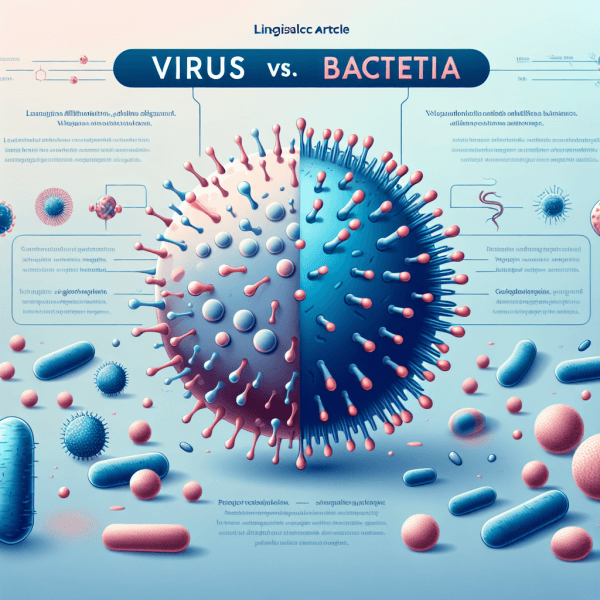In the world of biology, the terms "virus" and "bacteria" are often used interchangeably by the general public; however, they refer to two fundamentally different entities with distinct characteristics, structures, and roles in nature. Understanding these differences is crucial for biology, medicine, and public health.
Definitions
A virus is a microscopic infectious agent that can only replicate inside the living cells of an organism. Viruses are composed of genetic material (either DNA or RNA) encased in a protein coat, known as a capsid. They are often much smaller than bacteria and require a host cell for reproduction, making them obligate intracellular parasites.
On the other hand, bacteria are single-celled microorganisms that can live independently or in colonies. They have a more complex structure, characterized by a simple cell wall, cell membrane, cytoplasm, and genetic material in the form of DNA. Bacteria can reproduce independently through a process known as binary fission.
Key Differences
- Structure:
- Viruses consist of genetic material (DNA or RNA) surrounded by a protein coat. - Bacteria have a cell wall, cell membrane, cytoplasm, and genetic material in a single circular chromosome. - Size:
- Viruses are typically around 20 to 300 nanometers in diameter and require an electron microscope to be seen. - Bacteria range from about 0.5 to 5 micrometers in size and can be viewed under a light microscope. - Reproduction:
- Viruses cannot reproduce on their own and must invade a host cell using the cell's machinery to replicate. - Bacteria reproduce independently through binary fission. - Metabolism:
- Viruses do not have metabolic processes; they lack the machinery for synthesizing molecules. - Bacteria perform metabolic processes and can be anaerobic or aerobic, deriving energy from various sources. - Treatment:
- Viral infections are usually treated with antiviral medications that inhibit viral replication. - Bacterial infections are treated with antibiotics that specifically kill bacteria or inhibit their growth.

Example Usage
To illustrate the difference further, consider the following examples of usage in sentences:
- Virus: "The influenza virus spreads rapidly during the winter months, leading to seasonal outbreaks of the flu."
- Bacteria: "Certain types of bacteria, such as Escherichia coli, are essential for a healthy digestive system but can cause food poisoning if pathogenic strains are present."
Conclusion
In summary, while viruses and bacteria may be grouped under the larger umbrella of microorganisms, they represent distinct biological entities with different structures, modes of reproduction, and treatments. An accurate understanding of these differences is vital for effective communication in healthcare and research, especially given the central roles they play in disease and health.








Have a discussion about this article with the community:
Report Comment
We're doing our best to make sure our content is useful, accurate and safe.
If by any chance you spot an inappropriate comment while navigating through our website please use this form to let us know, and we'll take care of it shortly.
Attachment
You need to be logged in to favorite.
Log In